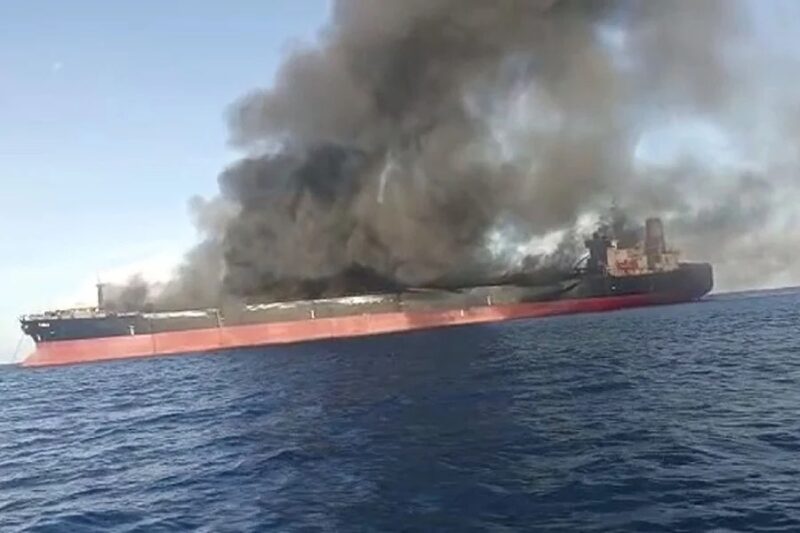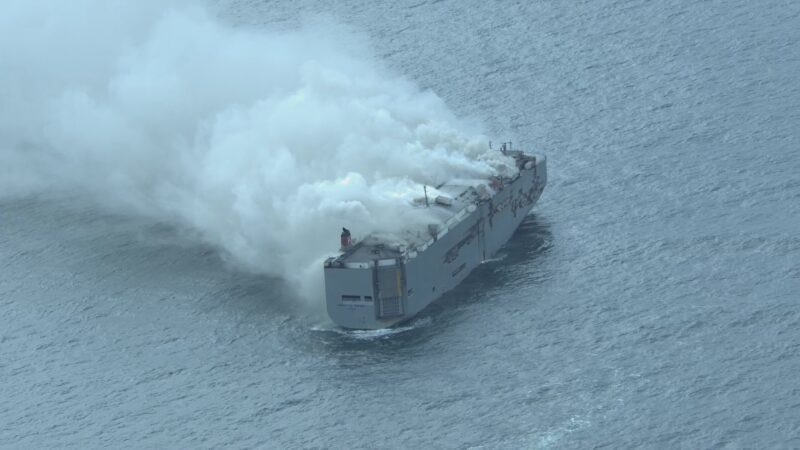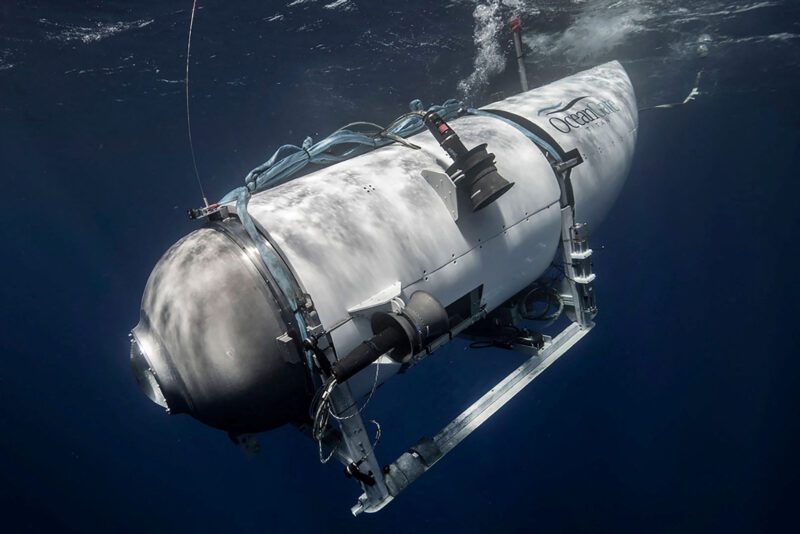This year proved once again that the maritime industry is one of the most important and exciting industries on the planet. As 2023 comes to a close, we’re taking a look back at some of the biggest maritime stories that dominated the headlines over the last twelve months, as selected by gCaptain’s editors.
Russia’s Shadow Fleet

As Russia continues its war in Ukraine, the implementation of a price cap on Russian oil by G7 nations, the European Union, and Australia has led to the emergence of a “shadow fleet” of tankers being used to transport Russian oil over the price cap and under the radar. Estimates as to the size of the fleet range from a couple hundred to up to 600 ships that are owned and operated by a complex web of obscure companies and oil traders. The increasing size of the fleet has contributed to growing environmental and safety concerns and led to additional sanctions on entities involved in transporting Russian oil above the established cap.
Black Sea Grain Exports
Speaking of Russia’s war in Ukraine, the transportation of Ukrainian grain from Black Sea ports continued to make headlines in 2023. The Black Sea Grain Deal, brokered by the United Nations and Turkey in 2022, helped to alleviate a global food crisis by allowing Ukrainian grain and fertilizer blocked by the war to be exported safely. However, in July, Russia declined to extend the deal, leading Ukraine to establish its own alternative Black Sea corridor in order to continue exporting despite Russia’s disapproval and risks involved, such as floating sea mines. Since quitting the deal, Russia has stepped up attacks on shipping and port infrastructure in the region.
Container Shipping’s Return to ‘Normal’
In 2023, the container shipping market shifted from the surge caused by the COVID-19 pandemic to a more “normal” state similar to before the pandemic in 2019.
With supply chain disruptions and port congestion eased, freight rates suffered due to an influx of new ships coinciding with weaker demand. Meanwhile, geopolitical tensions have also continued to influence the container shipping market throughout the year. Notably, ongoing attacks by the Iran-backed Houthis in Yemen on ships in the Red Sea and Gulf of Aden continues to have unexpected effects on the market. While some major carriers are avoiding the area and rerouting ships around the Cape of Good Hope, others are preparing to resume services through the region under the protection of the US-led naval coalition Operation Prosperity Guardian. The impact on the container shipping sector will ultimately depend on how long the disruption will last—and right now that is anything but certain.
As we head into 2024, the container shipping sector faces an uphill battle but is proving once again that it is one of the most closely-watch maritime sectors no matter what’s happening in the market.
Car Carrier Fires in Focus

A major fire on board the pure car and truck carrier (PCTC) Fremantle Highway carrying hundreds of electric vehicle (EVs) put a spotlight on fire safety in the car carrier sector. The July fire was the latest in a long list of fire incidents involving PCTCs and re-ignited the debate around the safety of transporting EVs on board ships, which had previously been brought to the fore by the loss the Felicity Ace in 2022. Another notable fire, this one involving used vehicles, took place on board the Grande Costa D’Avorio at Port Newark, New Jersey, tragically resulting the loss of two firefighters.
Loss of Titan Submersible

The loss the Titan submersible sparked a global media spectacle the likes of which we haven’t seen since the 2021 grounding of the Ever Given in Suez Canal.
The OceanGate Expedition submersible suffered a catastrophic implosion back in June during a dive to the famous Titanic wreck with the loss of all five people on board, which include four paying customers. After an extensive multi-national search and rescue effort led by the U.S. Coast Guard, the wreckage of the submersible was located on the seafloor near the Titanic about 96 hours after it first submerged. The incident highlight the lax safety oversight of privately-operated submersibles and remains under investigation by the U.S. Coast Guard, NTSB and Transportation Safety Board of Canada.
By Mike Schuler. 28 December 2023.
Source: gCaptain. https://gcaptain.com/the-maritime-stories-that-made-2023/. 30 December 2023.
You may also like
Container freight rates take a breather
Container freight rates take a breather. The spike in spot container freight rates has flattened off over the last week. The Drewry World Container Index (WCI,) which has been seeing double-digit percentage weekly increases recently, was up just 1% over the previous week on 11 July at $5,901 per feu. The Shanghai Containerized Freight Index (SCFI) slid 1% to 3674.86 [...]
Chinese oil demand likely to underpin tanker market in medium-term
Chinese oil demand likely to underpin tanker market in medium-term. Rising oil demand in China is likely to be a key factor in supporting the tanker market in the coming years, according to analysis from New York broker, Poten & Partners. Following a sharp downturn in tanker contracting that saw the orderbook plunge to new lows before tanker owners started [...]
Singapore port operator says vessel waiting time reduced to two days
Singapore port operator says vessel waiting time reduced to two days. PSA Singapore has been grappling congestion caused by the Red Sea crisis and has been reactivating berths that had been previously been closed down. A combination of longer rerouting of container ships via the Cape of Good Hope to avoid attacks by the Houthi in the Red Sea and [...]


